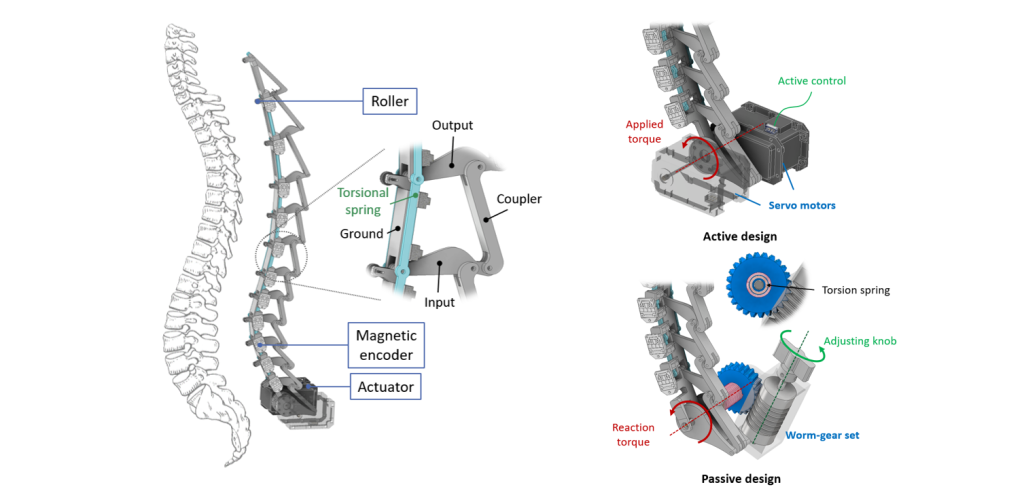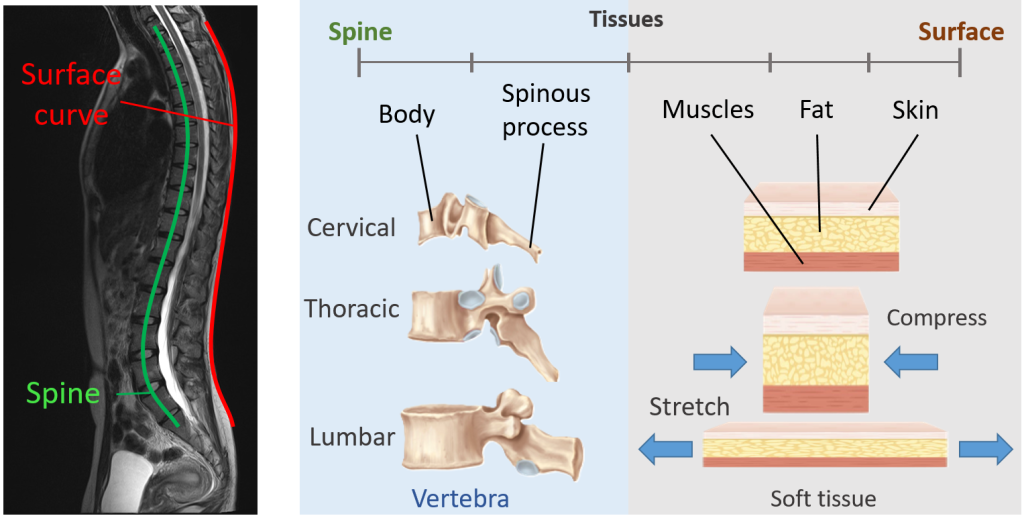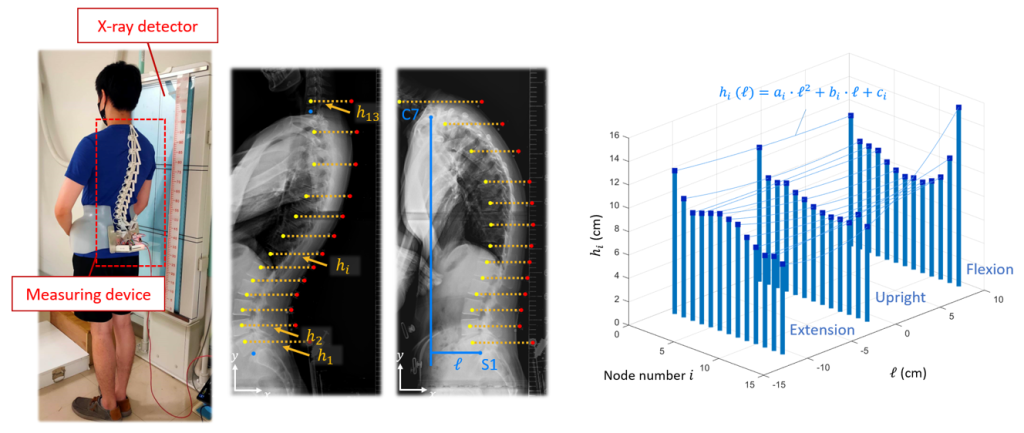This study presents a novel 12-degree-of-freedom underactuated wearable device specifically designed for continuous, noninvasive monitoring of spinal posture in nonclinical environments. By integrating a static model with a genetic algorithm for geometric parameter optimization, the device achieves adaptability to multi-DOF spinal motion while minimizing both weight and structural complexity, thus ensuring user comfort. In addition, two actuation designs—active and passive—are provided, allowing flexible selection based on different application scenarios and measurement requirements, thereby supporting both early experimental validation and long-term clinical implementation.

To compensate for measurement errors arising from variations in back muscle thickness and the morphology of spinous processes, this study further proposes a personalized calibration method tailored for the developed device. The method employs a second-order regression model to establish a mapping between the posture data measured by the device and the true spinal alignment obtained from X-ray images, thereby deriving subject-specific calibration parameters that effectively enhance the accuracy of spinal posture estimation.

